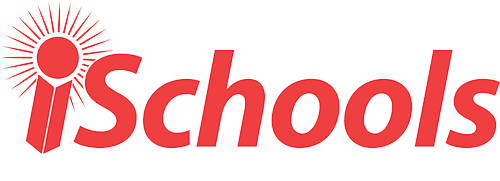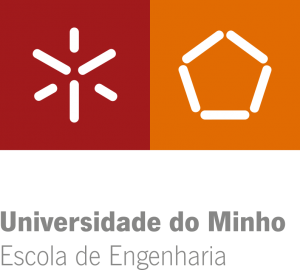Systems Engineering and Operational Research (SEOR)
Areas
The Systems Engineering and Operational Research (SEOR) R&D group mainly actuates in the Operational Research domains, by addressing complex engineering systems. The mission of the SEOR group is to promote, develop and disseminate quality research in the following main areas:
- Linear and Integer Programming;
- Nonlinear Optimization (Continuous and Mixed- Integer);
- Multi-objective Optimization;
- Mathematical Modeling of Dynamic Systems;
- Applied Statistics.
These areas are highly complementary and interdisciplinary, stimulating cooperation between members. SEOR group fosters excellence in fundamental and applied research. In fundamental research, SEOR group aimed to provide new and competitive exact and heuristic algorithms for optimization. Applied research is developed in collaboration with researchers from other R&D centers. SEOR members work with multidisciplinary teams in the areas of environmental systems, manufacture systems, and health science, due to the expertise in the areas of mathematical modelling and optimization systems.
The research on integer programming covers cutting and packing, production planning and scheduling, and network design aiming to solve large and complex optimization problems in different application areas, such as industry and health. In addition, hybrid methods combining linear and integer programming with metaheuristics for specific problems have been applied into kidney exchange programs.
The Nonlinear Optimization area covers the development, implementation and testing of stochastic and deterministic methods for global optimization (GO) problems, for non-convex mixed-integer problems, for bi-level programming in derivative- free (D-F) optimization. Theoretical convergence analysis of the algorithms has contributed to the validation of the proposed methodologies.
In the Multi-objective Optimization area, new evolutionary algorithms and algorithm performance metrics for multi- objective programming, as well as new derivative-free methods for continuous multi-objective optimization have been addressed.
The research based on optimal control of dynamic systems, such that those emerging from epidemiological and tumor growth models, made use of multi-objective optimization and has resorted to derivative-free methods and evolutionary algorithms. Research on mathematical programming with complementarity constraints provided the development of new solution strategies.
The focus of the Applied Statistics area mainly comprises data collection, analysis and application of statistical models for decision making, as well as the development of statistical methods and easy-to-use tools for application in bioinformatics, medicine, industry, art, education and specific areas of human engineering (ergonomics, safety, and occupational risks).
Three major contributions:
1) Internationalization Activities
The SEOR research members were involved in the membership of scientific associations, scientific work dissemination and internationalization activities, mainly the organization of international scientific events, participation in scientific committees in conferences, and editorship of special issues of high quality journals:
– Development of joint work with researchers from several countries, co-authoring articles published in international journals. In particular, researchers from Université de Bordeaux, IMB UMR CNRS 5251, Inria Bordeaux Sud-Ouest (France), Department of Computer, Control and Management Engineering “Antonio Ruberti”, Sapienza, University of Rome and DISMI, Università di Modena e Reggio Emilia (Italy), University of Málaga (Spain), Institute of Numerical Mathematics, Technische Universität Dresden, Dresden (Germany), Universidade Estadual de Campinas, Federal University of Parana, Federal Rural University of Semiarido, Departamento de Matemática, Universidade Estadual de Londrina, Rodovia Celso Garcia Cid, Km 380, Londrina (Brazil);
– International collaborations in student supervision. In particular, a master’s thesis in Systems Engineering co-supervised by Reggie Davidrajuh from the University of Stavanger, Norway (2021); the supervision of post-doctoral students from the University of São Paulo, Brazil (2020-2021) and the Federal University of Itajubá – UNIFEI, Brazil (2023-2024); and co- supervision of a sandwich doctorate student, Brazil (since 2023);
– Involvement (as board members) in the Portuguese Association of Operational Research (APDIO).
Editorial activity:
– co-Editors of Special Issues of the Journal of Global Optimization, Springer, and Mathematical Problems in Engineering, Hindawi;
– Managing editor of Journal of Global Optimization, Springer;
– Editorial participation in conference proceedings books (LNCS, Springer) of the International Conference on Computational Science and Its Applications.
Organization of scientific events:
– Organization members of international conferences in Portugal: EUROGEN 2019, FGP 22, ICIE2020, ICIE2022, CISPEE’23. Collaboration with researchers from other countries in the organization of ICCSA;
– Organization of Mini-symposium“Optimization in forest management and wildfire“ in the conference FGP 22 (11 presentations), co-responsible of Special Session “Statistical and critical thinking impact on decision making under uncertainty” at ICIE2022; Workshop “Computational Optimization and Applications” in the conference ICCSA 2018, ICCSA 2019, ICCSA 2020, ICCSA 2021, ICCSA 2022, ICCSA 2023; Workshop “Computational and Applied Statistics” in the conference ICCSA 2018, ICCSA 2019, ICCSA 2020, ICCSA 2021, ICCSA 2022, ICCSA 2023. Organization of Several Seminars in the context of the Project O3F, 2023.
Academic prizes:
– Runner-up in the 2019 IFORS/ITOR/Wiley Best Paper Awards in Category 1 of Surveys and Tutorials (https://www.ifors.org/itor-best-paper- awards/);
– One of the 30 representative and influential articles in ITOR’s history selected by ITOR’s Editor-in-Chief in the special edition of “Celebrating 30 years of International Transactions in Operational Research” (https://onlinelibrary.wiley.com/doi/full/10.1111/itor.13245)(href=https://onlinelibrary.wiley.com/doi/toc/10.1111/(ISSN)1475- 3995.special-virtual-issue-30th-anniversary?page=2″>https://onlinelibrary.wiley.com/doi/full/10.1111/itor.13245);
– “Oliveira, Ó., Gamboa, D., & Silva, E. (2023). An introduction to the two‐dimensional rectangular cutting and packing problem. International Transactions in Operational Research, 30(6), 3238- 3266” (https://doi.org/10.1111/itor.13236) was ranked as one of the articles in the top 10% of the best published ITOR articles (among works published between January 1, 2022 – December 31, 2022);
2) Funded R&D Projects
The SEOR R&D group is committed with international research projects such as H2020 project NEWEX: Investigation and development of a new generation of machines for the processing of composite and nanocomposites materials (http://newex.pollub.pl/, 2017-2021); FIBR3D: Additive manufacturing based hybrid processes for long or continuous fiber reinforced polimeric matrix composites (2016-2021); mKEP: Models and optimisation algorithms for multi-country kidney exchange programs (2015-2019).
Some other research projects, funded by FCT, from SEOR members as Principal Investigators (or co-PI) are: PPC4.0: Production Planning Control 4.0 (2020-2023); O3F: An Optimization Framework to Reduce Forest Fire (2021-2024); FAIR: Fatigue and ergonomics perception for human-care Intelligent collaborative Robot (2023-2024). To end, the SEOR members are also team members in research projects led by other researchers, such as, Integrated and Innovative Solutions for the well-being of people in complex urban centers (2021-2022).
Some SEOR member are also committed with projects in collaboration with industry, such as the Bosch Car Multimedia Portugal, with the Project Factory of the Future: FOF.IOMng.P53 – Condition-based maintenance (CBM); Easy Ride: ER.InCo.P32 – HMI Concepts for HAD: Preventive Measures Against Motion Sickness in Autonomous Cars; and Project Nr. 002814, iFACTORY: P26 – Multivariate Statistical Process Control in Optical Path of HUFs and 3D Solder Paste Inspection.
Patents
In the context of the work developed in the Project Nr. 002814, iFACTORY: P26 in collaboration with Bosch Car Multimedia Portugal, a Patent was emerged for the development of a user interface capable of simply and effectively translating classification events based on probabilities of detecting dry, waterlogged or icy road surfaces from data collected by RCS (Road Condition Sensors), which is supported by multivariate statistical techniques:
Title: INPUT APPARATUS FOR PROVIDING USER FEEDBACK IN RESPECT OF AN ELECTRONIC PROBABILITY-BASED CLASSIFIER, Publication Number: WO/2020/016634, Publication Date: 23.01.2020, International Application No.: PCT/IB2018/055414 (https://patentscope.wipo.int/search/en/detail.jsf?docId=WO2020 016634 )
It also includes important projects in collaboration with industry, such as the Bosch Car Multimedia Portugal, with the Project Nr. 002814, iFACTORY: P26 – Multivariate Statistical Process Control in Optical Path of HUFs and 3D Solder Paste Inspection.
Some other research projects, funded by FCT, from SEOR members as Principal Investigators are: SearchCol: Metaheuristic search by column generation, KEP – New models for enhancing the kidney transplantation process and MST4IRTO: New models and solution techniques for integrated and real-time optimization in the supply chains. To end, the SEOR members are also team members in research projects led by other researchers.
3) Main Publications in 2018-2023
Martinovic, J., Strasdat, N., de Carvalho, J. V., & Furini, F. (2023). A combinatorial flow-
based formulation for temporal bin packing problems. European Journal of Operational
Research, 307(2), 554-574.
https://doi.org/10.1016/j.ejor.2022.10.012
Mendes, A. B., & e Alvelos, F. P. (2023). Iterated local search for the placement of wildland
fire suppression resources. European Journal of Operational Research, 304(3), 887-900.
https://doi.org/10.1016/j.ejor.2022.04.037
Silva, E., Oliveira, J. F., Silveira, T., Mundim, L., & Carravilla, M. A. (2023). The Floating-Cuts
model: a general and flexible mixed-integer programming model for non-guillotine and
guillotine rectangular cutting problems. Omega, 114, 102738.
https://doi.org/10.1016/j.omega.2022.102738
de Lima, Vinícius L., Alves, Cláudio, Clautiaux, François, Iori, Manuel, Valério de Carvalho,
José M. (2022), Arc flow formulations based on dynamic programming: Theoretical
foundations and applications. European Journal of Operational Research, 296: 3-21.
https://doi.org/10.1016/j.ejor.2021.04.024
Matos, M. A., Rocha, A. M. A., & Costa, L. A. (2021). Many-objective optimization of build
part orientation in additive manufacturing. The International Journal of Advanced
Manufacturing Technology, 112(3), 747-762.
https://doi.org/10.1007/s00170-020-06369-5
Macêdo, M.J.F.G., Karas, E.W., Costa, M.F.P., Rocha, A.M.A.C. (2020), Filter-based
stochastic algorithm for global optimization. J Glob Optim 77, 777–805.
https://doi.org/10.1007/s10898-020-00917-9
Quiroga‐Orozco, J. J., Valério de Carvalho, J. M., & V. Hoto, R. S. (2019). A strong integer
linear optimization model to the compartmentalized knapsack problem. International
Transactions in Operational Research, 26(5), 1633-1654.
https://doi.org/10.1111/itor.12639
Fliege, J., Vaz, A. I. F., & Vicente, L. N. (2019). Complexity of gradient descent for
multiobjective optimization. Optimization Methods and Software, 34(5), 949-959.
https://doi.org/10.1080/10556788.2018.1510928
Alvelos, F., Klimentova, X. & Viana, A. Maximizing the expected number of transplants in
kidney exchange programs with branch-and-price. Annals of Operations Research 272,
429–444 (2019).
https://doi.org/10.1016/j.endm.2016.03.036
Rocha, A.M.A.C., Costa, M.F.P. and Fernandes, E.M.G.P. (2018), On a multiobjective
optimal control of a tumor growth model with immune response and drug therapies. Intl.
Trans. in Op. Res., 25: 269-294.
https://doi.org/10.1111/itor.12345
SEOR Coordinator: Ana Maria Alves Coutinho Rocha
Recent SEOR Publications:



